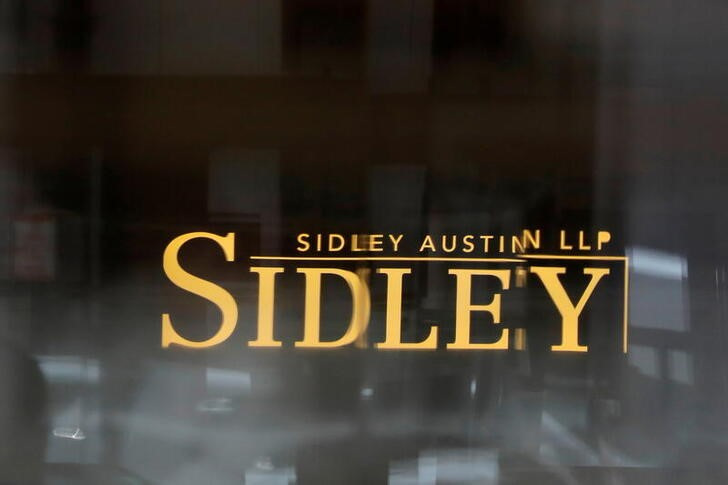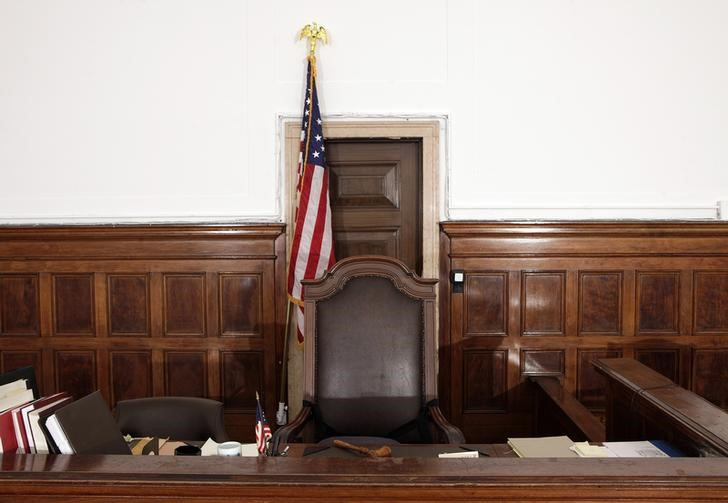DC court revives torture report lawsuit against Sidley law firm, psychology group

Signage is seen outside of the law firm Sidley Austin at their legal offices in Washington, D.C., U.S., May 10, 2021. REUTERS/Andrew Kelly Acquire Licensing Rights
Sept 7 (Reuters) - The D.C. Court of Appeals on Thursday revived a lawsuit against U.S. law firm Sidley Austin and the American Psychological Association brought by retired military psychologists who said they were defamed in a report about detainee interrogations following the Sept. 11, 2001 terrorist attacks.
The court rejected the psychologists' argument that Washington, D.C.'s Anti-SLAPP Act, which allows defendants to quickly dismiss certain lawsuits, violated the First Amendment right of petition under the U.S. Constitution.
But the appellate court did strike down a provision of the District's Anti-SLAPP Act that limits how much material parties can collect in discovery before a court decides whether to dismiss a lawsuit under the law.
The Court of Appeals reversed the D.C. Superior Court's March 2020 dismissal of the defamation lawsuit filed by former Army field officers Morgan Banks, Debra Dunivin and Larry James and ordered more discovery in the case.
Bonny Forrest, a lawyer representing the plaintiffs, said in a statement that they "are confident that, with the evidence full discovery will produce, they can prove that they were defamed by the Hoffman report that gave rise to the case."
An APA spokesperson said the group was disappointed by the ruling. The D.C. anti-SLAPP provision rejected by the court lets libel defendants "obtain early dismissal of non-meritorious lawsuits like the one at issue," the spokesperson said.
Representatives for Sidley did not immediately respond to requests for comment.
In 2015, the APA commissioned a report spearheaded by Sidley partner David Hoffman that found APA officials had "colluded" with U.S. defense officials to issue "loose, high-level ethical guidelines" for U.S. personnel interrogating detainees after the Sept. 11 attacks.
The George W. Bush administration authorized the use of "enhanced" interrogation techniques such as waterboarding on terrorism suspects. Critics said these techniques amounted to torture.
The Hoffman report identified Banks and Dunivin as "key players" in a task force created by the APA in 2005 that worked closely with U.S. defense officials to "produce an outcome that would please DoD." James was also a member of the task force.
Banks, Dunivin and James alleged that Sidley's 2015 report destroyed their personal and professional reputations. They said they worked for years to stop abusive interrogations, including torture, of people detained by the U.S. government. After the report's publications, they alleged they faced "renewed and ongoing calls" for criminal and war crime prosecution.
During oral arguments in April 2022, a lawyer for Sidley and Hoffman defended the report, which was the result of interviews with 150 witnesses and reviews of 50,000 documents.
The case is Morgan Banks v. Hoffman, District of Columbia Court of Appeals, No. 20-cv-0318
For the plaintiffs: Bonny Forrest, sole practitioner; Kirk Jenkins of Arnold & Porter Kaye Scholer; and John B. Williams of Williams Lopatto
For Sidley Austin and David Hoffman: Thomas Hentoff and John Villa of Williams & Connolly
For the American Psychological Association: Barbara Wahl and Randall Brater of ArentFox Schiff
Read More:
Sidley law firm, psychologists square off in defamation case over terror interrogations
Our Standards: The Thomson Reuters Trust Principles.







